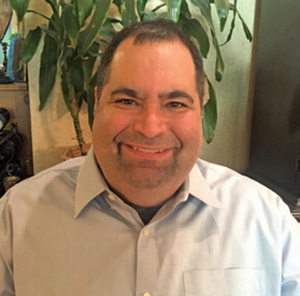
Part 2
For five years, the Federal Enforcement Agency said they would not prosecute in states where legalization has occurred, but now Sessions has put states on notice that even in states with decriminalized marijuana, the government reserves the right to prosecute the dealing, use and possession of marijuana as an illegal drug, which has never changed under federal law.
Another policy exhibiting the tension between states’ rights and federal enforcement is the policy of “Sanctuary Cities.” In many large cities in the United States, and prominently throughout the Northeast, including in New York and New Jersey, as well as on the West Coast, local governments have announced a policy of civil disobedience. Specifically, that undocumented residents, people whom the federal government refers to as illegal aliens, would have a safe haven and would not be referred to the federal government for violation of immigration laws.
Cities and states creating sanctuary argue that it is a matter of policy and justice. It is in the interest of safety and welfare that non-Americans without documentation be permitted to use hospitals for medical care, to use public authorities to protect against criminal exploitation and to call the fire department to report conflagrations without fear of being deported. No one wants an infected person spreading a contagious disease out of fear that seeking medical care will lead to a scheduled deportation.
But immigration policy is specifically a reserved right within the Constitution and the federal government has indicated that it may hold back allocated funds earmarked for states and cities that refuse to comply with immigration policy and enforcement authorities.
Most recently, we see the tension forming with respect to gun-control laws. Again, many Eastern and Northern states have expansive gun regulations. In New Jersey, the mere possession of a gun without a permit can result in a three-year prison term. New York also has very strict gun-control rules that can result in mandatory jail for offenders. Both states employing states’ rights will not recognize a valid permit issued in another state to a resident of a state where gun possession is much more permissive.
This is a major fight currently in Congress where a significant portion of federal representatives have been pushing for a new law. The Concealed Carry Reciprocity Act would essentially force states like New Jersey and New York to treat a gun permit like a driver’s license. A gun license validly issued in one state would be required to be given legal status in every state should the law pass.
The National Rifle Association considers the bill “its number one priority.” The poster child for the movement is Shaneen Allen, a woman from Pennsylvania who mistakenly believed that her validly issued gun permit in her home state made the gun she had in her possession legal when she was pulled over for a routine traffic violation in Atlantic City. Allen informed the police officer who pulled her over that she had a gun and she was promptly arrested. Allen spent 48 days in jail before being pardoned by Chris Christie towards the tail end of 2015.
The single, black mother has been rallying in favor of the CCRA and with the promotion of the NRA. Allen purchased the gun for protection of herself and her family, she has never used the weapon and had she been stopped in Pennsylvania her possession of the gun would be perfectly legal. Allen tells people, including Congress members, that had New Jersey’s governor not pardoned her, she would likely still be in jail today.
It is ironic that often it is the Republicans who rally for limited government and liberals who push for expansive Federal regulation, which, under most circumstances, is viewed as more secure for vulnerable people like women and minorities. But in Allen’s case, the NRA is pushing forth an example of a woman who is a minority. The NRA points to statistics that it is minorities that are more often subject to arrest and incarceration for gun permit violations. Allen agrees.
But it is generally “blue-state” New York and New Jersey that are taking up the banner of states’ rights with respect to gun laws as well as immigration enforcement policy and marijuana legalization. We see these examples and realize it is not so simple to say that beneficial policies of expansive or limited government are political issues strictly belonging to one party or the other. The constitutional tension between federal supremacy and reserved jurisdictional home rule by states is fluid and alternating. We should also be seeing a bit more clarity in this field by June as the Supreme Court recently heard argument on a separate Supremacy Clause issue: the right of states not to enforce federal gambling laws—an argument that the appellant, the state of New Jersey, has lost at two lower Federal Court hearings. But after their day in front of the nine justices of the Supreme Court, New Jersey said it is optimistic that state rights will rule the day. The hope of the state is that the Supreme Court justices will say that the Supreme Law has limits, breathing life into the 10th Amendment for another generation 157 years after the South fought a war over the reach of federal government, and lost.
By Stephen Loeb
Stephen R. Loeb is an attorney in New Jersey and New York and owner of The Law Offices of Stephen R. Loeb. He can be reached at [email protected].













